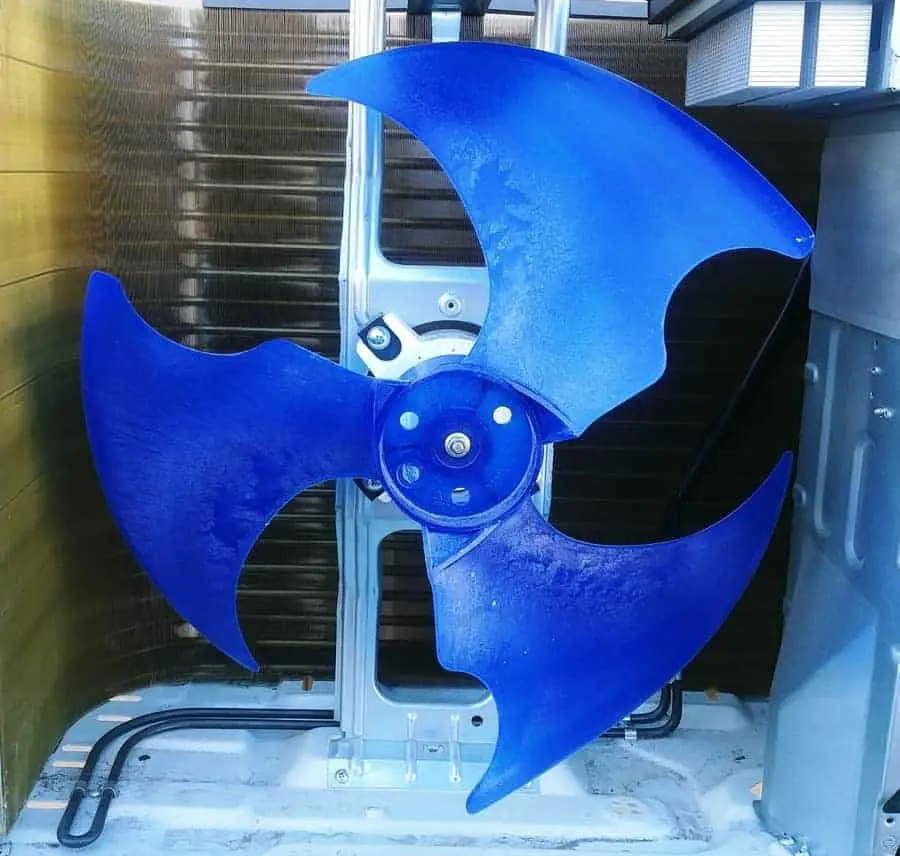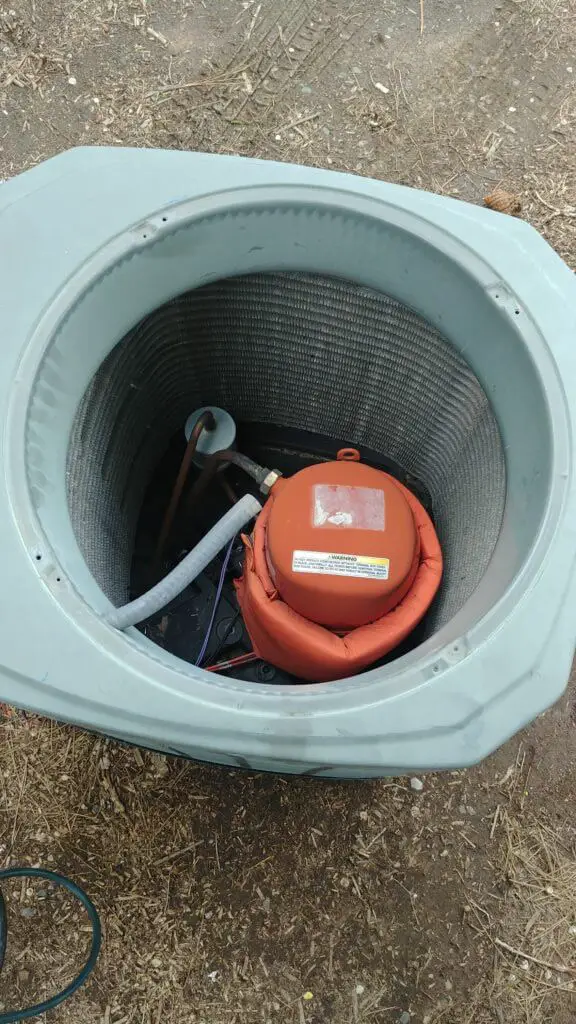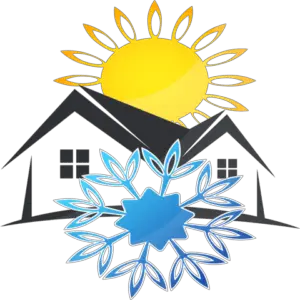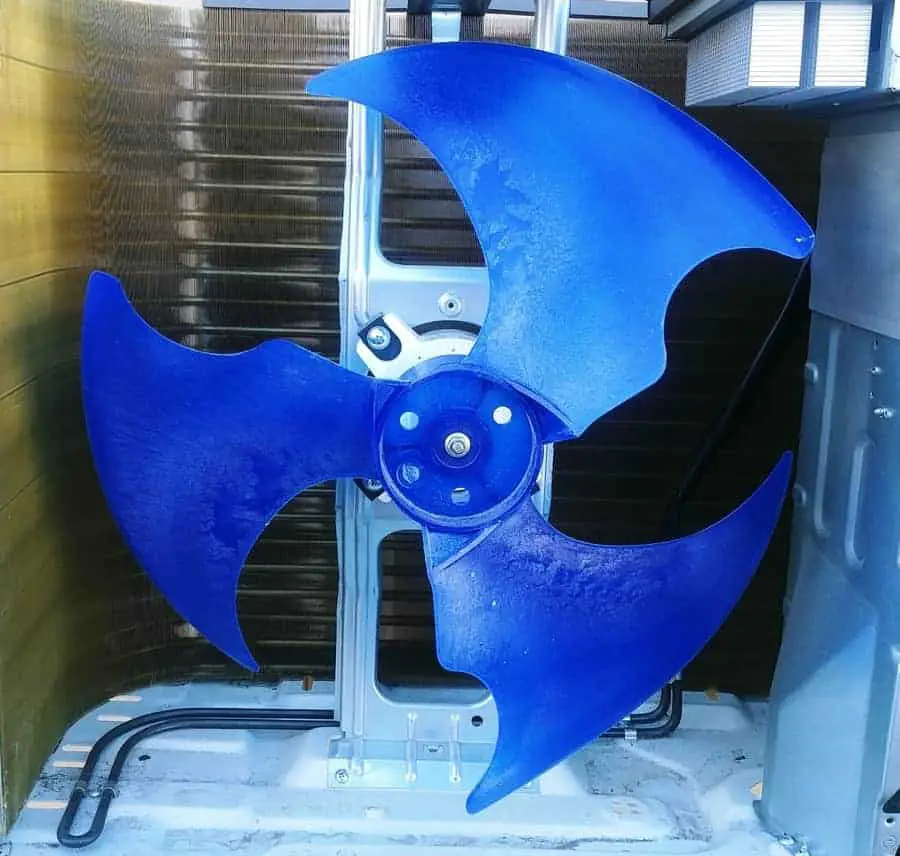Some of the quietest heat pumps on the market are the mini split or ductless heat pumps. But new standards and competition have made full-sized heat pumps quiet enough for most homeowners and neighborhoods.
Years ago, the Trane XV19 passed some of the most stringent tests for noise in Seattle, Washington. The Trane company worked with the city to develop a heat pump in closely knit neighborhoods where heat pumps had been banned because of noise.
The XV19 outdoor unit looks like a ductless heat pump but will match an indoor unit for a complete duct system.
In my opinion, the problem with some manufacturers is their planned obsolescence. Try to get some parts when your system ages some. If you can get them, plan to spend dearly.
Before I go too far here, let me interrupt this thought pattern of finding a quiet heat pump or air conditioner, especially if you’re considering buying a new HVAC system; just read my article about questions you should ask before buying. There are 30 great questions in this article.
Now, back to finding a quiet unit.
Why are heat pumps noisy? Most noise complaints are about outdoor units, not a noisy heat pump indoor unit. Suppose yours is 10 to 15 years old. That is part of the reason. Newer heat pumps are just flat-out quieter.
I researched the noise levels of 14 SEER heat pumps, so if you’re curious about how some major brands compare, check it out. However, in January 2023, the DOE established a minimum efficiency for residential heat pumps of 14.3 SEER2.
We’ll talk about buying other new heat pumps and how you can make an old one much quieter.
For your old heat pump, that works okay but sounds a little noisy; here are three things you can do now so you and your neighbors can sleep better and still be friends.
- Compressor Blanket
- Forward Swept Fan Blade
- Outdoor Unit Sound Barriers (Fence like stuff)
This gray compressor blanket is a universal fitting noise suppressor. It’s available on Amazon’s website. You can check out its current price and availability here (ad). This compressor blanket has a simple Velcro attachment to itself after wrapping the blanket around the compressor.
This is a discussion about whole-house air-to-air systems with ductwork, not the new mini split or ductless heat pumps that actually are so quiet you have to look at the fan sometimes to see if it’s on.
If you want to learn a bit about ductless mini splits, I wrote an article covering their application. You can read it here.
I’ve done quite a bit of research, and even though each manufacturer claims they have the lowest decibel rating for heat pumps, let me show you there is just no way you are going to set up a scenario so that you can determine which one is quieter than the other.
Consider first what a decibel actually is. Not the gradual scale you may have supposed.
What is a decibel? Zero decibels (0 dB) is the quietest sound audible to a healthy human ear. From there, every increase of 3 dB represents a doubling of sound intensity, or acoustic power.
noisehelp.com
That means a heat pump with a decibel rating of 58 has twice the intensity or acoustic power of a heat pump at 55 decibels.
The weakness of these ratings regarding heat pumps comes into play when you consider that there is no governing body with a set of rules to measure decibels for all the different brands.
I just watched a video of a supplier for a popular brand-name piece of equipment holding a sound meter near a heat pump to measure its decibels. In the demonstration, he said he was holding the meter about three feet from the running machine.
Conversation in restaurant, office, background music, Air conditioning unit at 100 feet.
Industrialnoisecontrol.com
One test at 3 feet and now one at 100 feet. How far away from the machine do those who test their equipment hold their sound meter?
What are the surrounding conditions for the test? Warehouse? Small testing room? An open parking lot? An installed unit on a house?
It hasn’t been until very recently that those who measure furnace filter efficiency have created a standard method to measure filters called the MERV rating.
Until manufacturers of heat pumps get together and set up universal testing criteria, who knows which one is the quietest?
What Does My Heat Pump Compressor Location Have To Do With Noise?
Improper installation location is the primary reason for heat pump noise complaints.

Housing setbacks as small as 5 feet complicate the installation of outdoor units. They are picking the ideal location to satisfy your noise requirements so the homeowner can keep the neighbors up at night.
Even with larger lots and open areas, sound travels in mysterious ways. It can turn a friendly neighbor into a grump.
So, if the location has more to do with noise reduction, finding the quietest heat pump could be less of a buying factor than you may suppose.
Manufacturers allow as much as 50 feet from the furnace to the outdoor unit, and sometimes even more can be allowed and still maintain warranties.
Your installer will know the proper size and length for refrigeration lines to the outdoor unit.
Such a distance offers most homeowners many choices in outdoor unit locations to focus the noise on the best area. Even the front of a home can be a good location with proper shrubs or bushes to conceal its location.
Building fences around units to quiet them down offers another set of obstacles. Airflow around the unit should not be impeded. Designing fencing that allows all the air a heat pump needs to stay efficient is critical.
Shrubbery or bushes around the outdoor unit must be loose in density, allowing air to flow and not grow into the equipment.
Forward Swept Fan Blades For Quieter Heat Pump Operation
QHSF stands for Quiet High-Speed Fan. NASA tested it to achieve a 6% reduction in fan noise. This is probably a test you could trust.

Although NASA’s test was in conjunction with other special features, many brands of heat pumps and air conditioners have adopted this design to reduce noise.
No matter how small, every increment of noise reduction can improve your quiet times and that of your neighbors. Much the same way as the auto industry has slowly improved fuel consumption over time.
These fan blades are an easy DIY project, but I wouldn’t change your current blade without checking with tech support for your particular unit. Changing fan blades can change airflow related to refrigerant pressures.
What Is A Heat Pump Compressor Sound Blanket?
Sometimes referred to as a compressor acoustical jacket, these blankets are constructed of weatherproof material and insulation to limit the noise your compressor produces. They wrap around the compressor and are generally held into place with Velcro.

Some people ask if a blanket wrapped around the compressor in the heat of summer will overheat it. The answer is no. If the unit has the correct refrigerant charge, it is cooled internally by the refrigerant returning to the compressor.
Some manufacturers include a compressor blanket in their heat pumps. But blankets can be bought separately and installed on any system.
A compressor blanket is an easy DIY project. Turn off the power. Remove the top of your outdoor unit and carefully prop it up out of your way. A second hand would be helpful. Put the blanket on the compressor and your set. Reassemble the heat pump. Have your forward-swept fan blade simultaneously and make a big difference in your noise problem.
If your heat pump is older, you may have a reciprocating compressor. It’s pretty easy to tell the difference. Do a Google search for reciprocating vs scroll compressors. You can peek down inside the unit and readily tell. If it is reciprocating, get a sound-insulating blanket.
Reciprocating compressors have a piston with a crank and valves. More moving parts means more noise.
Scroll compressors have made heat pumps quieter, more durable, and longer lasting.
So, when you’re buying a new system find the contractor and the price you like, it’s not always necessary to have found the quietest system. Pick the quietest location for the outdoor unit, and be sure it has a compressor blanket and a forward-swept fan blade.
If you’re sticking with the old heat pump, add the appropriate accessories and make it last as long as possible.

